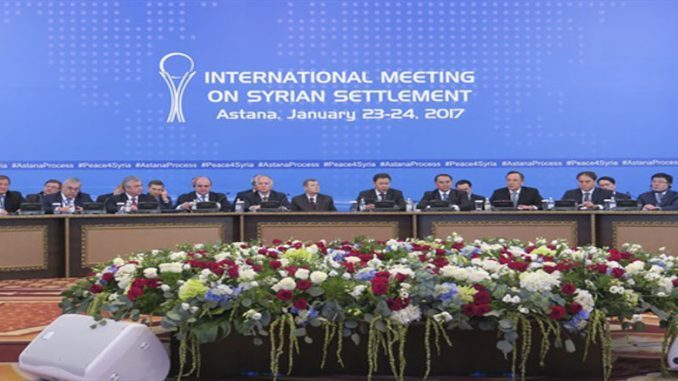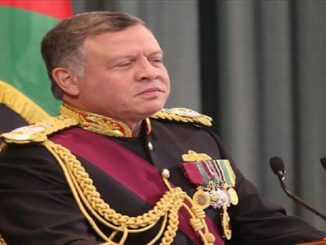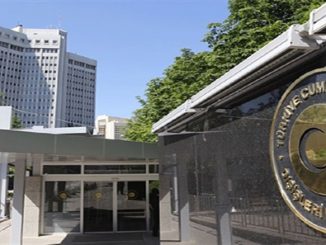
 BY: Akif Emre*
BY: Akif Emre*
The question of according to what the names of the states were given revealed interesting models especially after empires. The names of the states that emerged in the Middle East and the Balkans after the disintegration of the Ottomans must be individually examined. What historical, cultural and geographical background was taken as a basis? The names of the nation-states of the old colonies of small Western European countries in Africa and Far East, as well as the names of the colonial administrations of France and the British Empire, which fell apart after World War II, are quite interesting.
Indeed, leftist intellectuals who aired the Western colonialism’s dirty laundry in public in the name of anti-imperialism in the Soviet era managed to veil the Soviets’ Russian chauvinism and colonialism. It is like the ideological irony of history that the Soviets expanded the colonialism that stated with the tsarist Russia’s invasion of Central Asia and that it suppressed the attempts for freedom with bloodshed.
Neither the beginning nor the end of colonialism was shaped on the basis of historical, regional or cultural facts. While colonialists were withdrawing, they developed formulas with which they could be easily interfere and continue their implicit sovereignty in the name of independence. They invented new nation states by forcing real conditions. This was followed by nationalism as the ideology of the invented nations. Maps and artificial borders that had almost no geographical, strategic and historical reality and that even challenged all of them appeared. We drifted away from experiences and regional realities because of the artificial maps of African countries to the extent that zigzagged maps of the West African coasts reflected the colonial logic. We have plenty of literature on what political and strategic concerns the Middle East’s maps were drawn. There had never been a borderline between Diyarbakır and Mosul that was not based on geostrategic reality in any period of history. Or Gaziantep and Aleppo had never been separated from each other in any period of civilization. It is possible to give other examples. Russia’s proposal of change in the name of Syria in its constitution draft pushes us to look at the names of nation states again. The Arab emphasis comes to the fore in countries where Arab nationalism is active as a founding ideology, like the Arab Republic of Egypt, Arab Republic of Yemen and Syrian Arab Republic. There are also nominations based on the granted dynasties like the Hashemite Kingdom of Jordan. Also, the names of regions came to the fore in states, like Iraq and Lebanon, which were complicated enough to fall into this framework.
The impact of the difference between Britain’s colonial approach and France’s practices in Africa and the Far East must be considered in naming these countries. The difference between a black person considering himself to be a French in France and an Asian person considering himself to be a Briton in Britain reveals what I mean.
While the British adopt a more pluralistic approach in ethnic and cultural terms, the French are exclusivist and standardizing. In fact, even what happened while both colonies were withdrawing from their colonies went down in history as the concrete applications of two different types of colonialism.
It is also worth noting the unique practices of the expansionism and colonialism of the Soviets, more precisely the Russians, which were consciously ignored in terms of colonial practices. It is necessary to think about the ideological and political framework of political structures in Turkistan which was called with this historic name even after the mid 20th century, despite being named as Central Asian Republics. The Soviet practice is known to have pursued a policy of separating Muslim nations which identified themselves with the Turkish superior identity in Turkistan. They aimed to separate Turkish tribes and reconstruct them on micro identities in a systematic way by pretending to be giving separate value and identities to each of them.
Given Russia’s experiences, is it possible to say that the name suggested for Syria is independent of Russia’s strategic vision? There is no need to be a priest to know that this initiative of a regional power with at least five centuries of experience of empire (Soviet and Tsarist Russia) in Eurasia, is not just about respecting the Kurds’ identities.
What I want to draw attention to here is not the question of how to find a political solution for Syria and how to establish a fair administration in the country in the present conditions. This is a topic of another article. However, there is a question that must be asked to the Russians on the basis of the archeology of names. Can they think to change the name of the country where millions of non-Slavic people, most of who are Muslims, live apart from the Russian ethnicity? We know that the answer to this question will be determined by strategic mind, historic depth and new Russian geopolitics, rather than concepts such as ethics and representation. Let us note that strategic calculations, rather than representation, are determinative in the name of Syria that is determined by pro-Arab ideologies and that exclude non-Arab elements.
*Akif Emre is a Turkish columnist. He writes for Yeni Şafak Turkısh daıly.
(Published in Yeni Şafak on Saturday 28, 2017)



